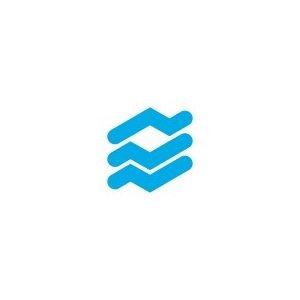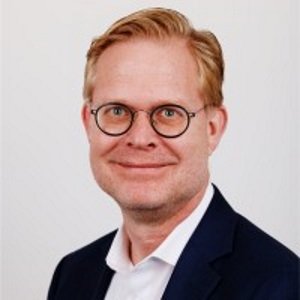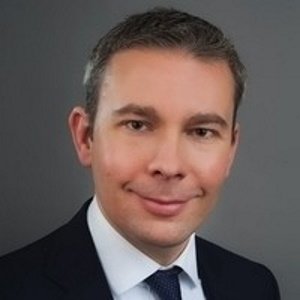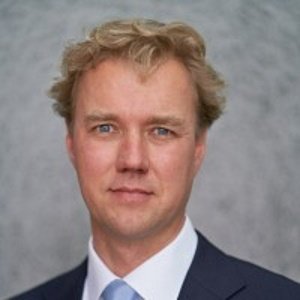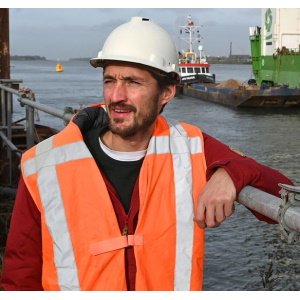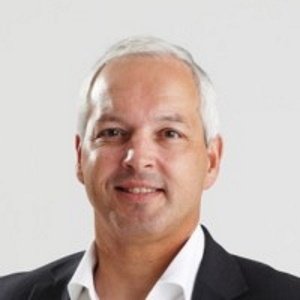Port of Rotterdam Authority - Experts & Thought Leaders
Latest Port of Rotterdam Authority news & announcements
Maritime shipping bunkered 9.8 million tonnes of fuel in Rotterdam, a moderate decrease from 9.9 million tonnes in 2023. In 2024 the demand for fuel oil, marine gas oil, and other fuels was 0.9 percent lower than in 2023. It was notable that the demand for LNG in 2024 rebounded to previous levels after a decline during the period of inflated gas prices. Totaling 0.94 million m3, the demand for LNG increased by 52 percent compared to 2023, when 0.62 million m3 was bunkered. Bio-blended fuels Following the inaugural bunkering of bio-methanol in the port of Rotterdam in 2023, the demand for bio-methanol surged in 2024, reaching nearly 4,000 tonnes, a remarkable increase from 750 tonnes in 2023. The demand for bio-blended fuels in 2024 exhibited a clear dichotomy: a slight growth in the first half of the year, followed by a sharp decline in the second half. Anti-dumping duties That was particularly evident in the demand for bio-blended VLSFO, the largest of the bio-blends. The increased availability of bio-blended fuels in Asia following the European Union’s imposition of anti-dumping duties on Chinese biofuel was the primary cause. Nonetheless, the demand for bio-blends remained unchanged from 2023 at 750,000 tonnes.
The government minister informed the Cabinet that the decision has been taken to prioritise the modalities of hydrogen and CO2 for the scope of the Delta Rhine Corridor (DRC). The Port of Rotterdam Authority is pleased with the government minister’s decision, given the importance of constructing the pipelines for hydrogen and CO2 as soon as possible. The decision is of great importance for the industry to achieve its goals of becoming sustainable. Investments in sustainability The hydrogen pipeline needs to be constructed quickly to get the hydrogen market going Boudewijn Siemons, CEO of Port of Rotterdam Authority: "This is a very important decision for the industrial clusters in Rotterdam, the Netherlands, Germany and Northwest Europe." "It underlines the urgency of offering the industry a future. Infrastructure precedes the investments in sustainability. It is excellent that this clarity has been provided." Hydrogen and CO2 pipelines The current scope for hydrogen and CO2 creates certainty for the modalities that must be achieved the fastest. This will allow the hydrogen and CO2 pipelines to be implemented according to a clear timetable, with completion scheduled for 2031-2032 for hydrogen and 2032-2033 for CO2. They will continue to work with stakeholders to accelerate where possible. The hydrogen pipeline needs to be constructed quickly to get the hydrogen market going. It is important news for companies currently considering investing in the production, storage and/or purchase of hydrogen. Development of CO2 storage Port of Rotterdam Authority also sees the necessity of the development of direct current cables The construction of the CO2 pipeline is not only important for Rotterdam but also for other industrial clusters in the Netherlands, Germany and Northwest Europe. The pipeline can contribute to the development of CO2 storage in empty gas fields under the North Sea. All infrastructure for energy flows is urgently needed. The Port of Rotterdam Authority also sees the necessity of the development of the direct current cables, which are currently outside this project, and will be happy to help identify alternative routes. Construction of new pipelines The plans for the construction of this pipeline bundle started in 2021 with a feasibility study into the construction of four new pipelines between Rotterdam, Chemelot and North Rhine-Westphalia for transporting C4-LPG, propene, hydrogen and CO2. Other modalities were later researched for the construction in the pipeline corridor running between the west to east of the Netherlands, including the hydrogen carrier ammonia. This pipeline falls outside the current scope at this time. Planning for any later construction will continue and depend on further research. The State will continue to be involved in the management and optimal use of the pipeline bundle.
The port of Rotterdam faces major challenges and opportunities arising from the expected growth in container volume to and from the port. One of those is efficiently handling road transport. The most important stakeholders have signed a declaration of intent to join forces in the ‘sector-wide negotiations for container transport by road’. Within the sector-wide negotiations, the challenges are being tackled to improve traffic flow, safety and sustainability of road transport to strengthen the port of Rotterdam’s competitiveness. Such initiatives already existed for inland shipping and rail. Sector-wide negotiations The sector-wide negotiations on container transport by road actively work on creating the safest, fairest, most sustainable and efficient possible container logistics by road to contribute to the top position of Rotterdam and the Netherlands as the transport country in Europe. The parties involved are convinced that a joint approach will be able to efficiently accommodate the expected growth in road transport to and from the port. This guarantees continued good operations to the hinterland, within the social preconditions related to safety and sustainability. The parties focus on six strategic focal points: Spreading road transport; more transport outside peak hours Developing dynamic port planning Pursuing zero emission container transport by road Reducing trips with empty containers and no containers; improving the load factor of trucks Secure chain for safe port logistics Pursuing zero incidents for a safe road chain Sustainable division of transport Safe, fair, sustainable and efficient: Spreading road transport to off-peak hours 100% dynamic port planning for road transport by 2030 Pursuing zero emission container transport by road Reducing trips with empty and no containers Building a chain of trust Zero incidents in 2025 Active working groups and fact-finding research The working groups on the themes of sustainability and safety recently started The working groups, involving all participating parties, such as transporters, freight forwarders, shippers, terminals, depots, ship agents and the Port of Rotterdam Authority, develop and tackle the focal points. The working groups on the themes of sustainability and safety recently started. Joint fact-finding research was conducted in parallel with these working groups’ activities. This research offers insight into the implications of the road product with growing container volumes and increasing autonomous developments. Furthermore, the research evaluates the added value of the strategic focal points before they are developed further in the working groups. The sector-wide negotiations for container transport by road primarily focus on improving the road product in the port of Rotterdam. However, all parties aim for a dynamic and sustainable division of transport over all modalities (road, rail and inland shipping).
